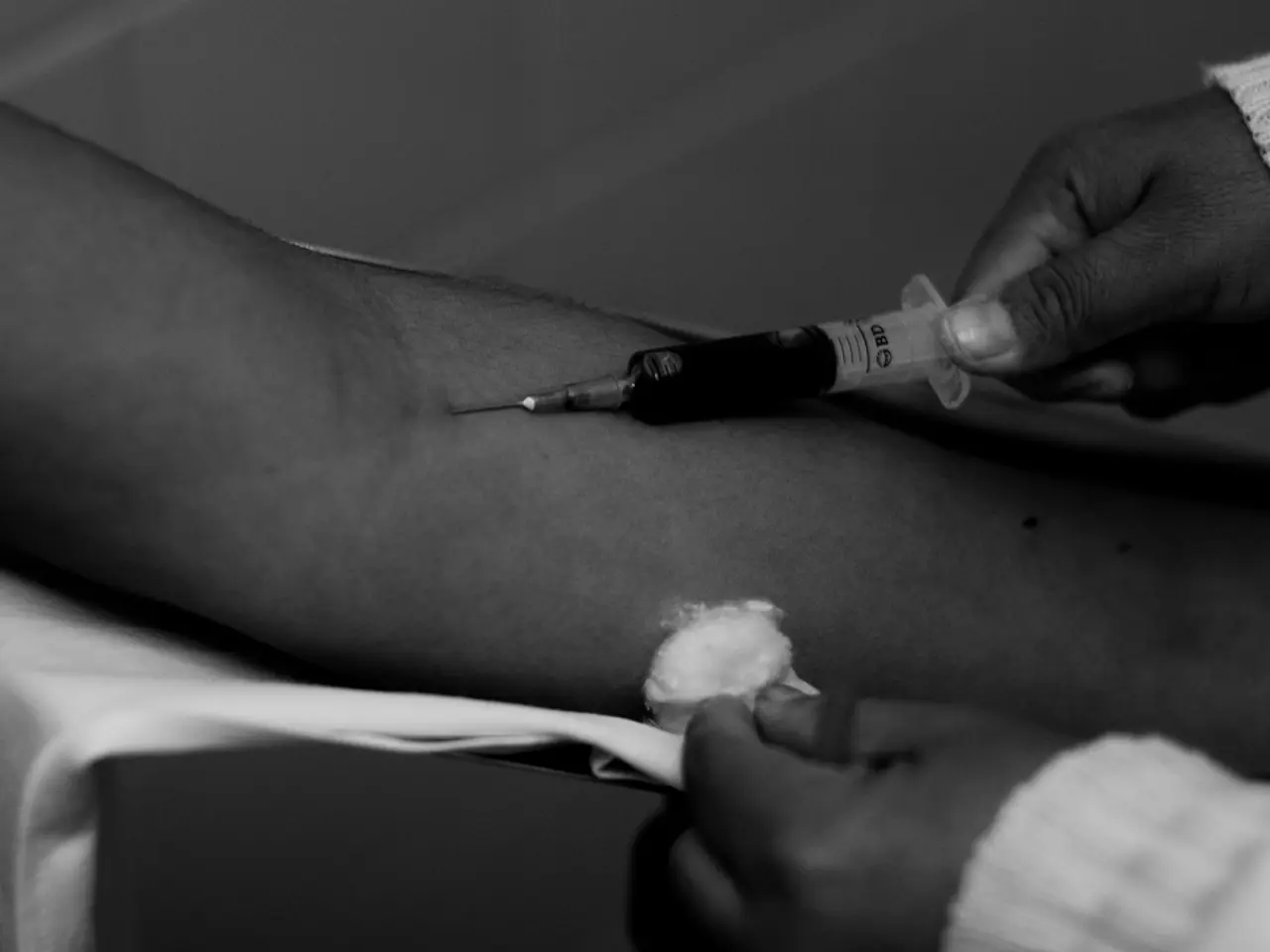Japanese B Encephalitis: An Examination of this Viral Infection
Japanese Encephalitis (JE) is a viral infection primarily affecting the brain, caused by the Japanese Encephalitis virus (JEV). This article provides an overview of the recommended preventive measures and treatment for JE, focusing on vaccination and mosquito bite avoidance strategies.
Vaccination
The Japanese Encephalitis (JE) vaccine is the most effective preventive measure. It is usually given as two doses administered 28 days apart, and full protection is achieved about 10 days after the second dose. Travelers should ideally complete vaccination at least 5 to 6 weeks before travel. For those with imminent travel, an accelerated schedule of two doses 7 days apart is an option for adults aged 18 to 65, still allowing 10 days after the last dose before exposure. Vaccination is especially recommended for those planning long-term stays (over one month), multiple trips, rural stays, or travel to outbreak areas in endemic regions. The vaccine is also available for babies, providing early protection.
Mosquito Bite Avoidance
Since JE is transmitted by infected mosquitoes, preventing bites is critical. Recommended measures include using insect repellents containing DEET, picaridin, or other effective agents. Wearing protective clothing such as long-sleeved shirts, long pants, and socks is also essential. Staying in accommodations with air conditioning or window and door screens can provide additional protection. Using insecticide-treated bed nets when sleeping in areas without screens or AC is also recommended. Avoiding outdoor activities during peak mosquito biting times at dusk and dawn is another preventive measure. Regularly emptying or covering items that can collect water can reduce local mosquito populations. Treating clothing and gear with permethrin and ensuring accommodations are secure against mosquitoes provide extra layers of protection.
Additional Measures
In addition to vaccination and mosquito control, maintaining hydration is essential for patients with JE, especially if they have difficulty swallowing or are experiencing vomiting. Medications such as acetaminophen or non-steroidal anti-inflammatory drugs (NSAIDs) can help alleviate fever and headache in patients with JE.
Treatment and Outlook
Treatment for JE primarily focuses on supportive care, with no specific antiviral treatment available. Severe cases of JE often require hospitalization for close monitoring and management of complications. After the acute phase of JE, many patients may require rehabilitation to recover fully, including physical therapy, occupational therapy, and speech therapy if there are difficulties with communication or swallowing.
The long-term outlook for individuals who contract JE can vary significantly, with approximately 30% of cases leading to death. Survivors may face a range of complications, including neurological issues, behavioral changes, and seizures. Family support is vital in helping individuals cope with the aftermath of JE.
Key Risk Factors
Key risk factors for JE include geographical location, seasonal factors, age, health status, occupational exposure, and lack of vaccination. The disease is most common during the rainy season in rural areas of Asia, including Japan, China, India, and parts of Southeast Asia. The virus maintains a cycle in nature involving mosquitoes, birds, and pigs as reservoir hosts, with humans acting as incidental hosts. The primary vector for the transmission of JE is the Culex mosquito, which breeds in stagnant water sources, particularly in agricultural regions.
In conclusion, understanding the potential challenges and being prepared can make a significant difference in the recovery journey for individuals affected by Japanese Encephalitis. By following recommended preventive measures, including vaccination and mosquito bite avoidance strategies, the risk of infection can be significantly reduced. For those affected by the disease, early diagnosis, supportive care, and rehabilitation can play a crucial role in recovery.
Vaccination and maintaining hygiene play important roles in managing medical-conditions like Japanese Encephalitis (JE). The JE vaccine is the most effective preventive measure, and health-and-wellness practices such as staying hydrated and using medications for fever and headache can help patients during recovery. Additionally, neurological-disorders can be potential long-term complications for JE survivors.




